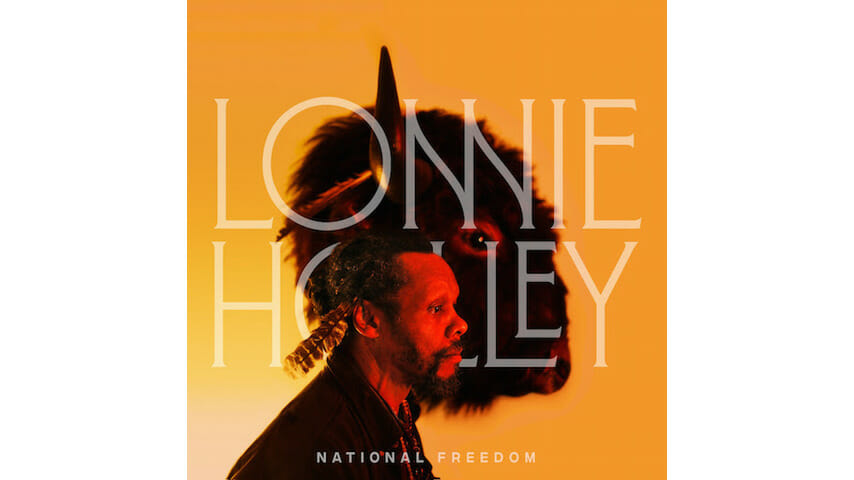Lonnie Holley’s National Freedom EP Puts a Surreal Spin on the Blues
These songs, recorded in 2013 and 2014 in Richard Swift's studio, find the Alabama artist at his most abstract

Lonnie Holley was born into poverty in Jim Crow Alabama 70 years ago and released his first album the same year as Death Grips. There is no other recording artist about whom that sentence could be written, just as there is no other recording artist who could have created “I Woke Up in a Fucked-Up America”, Holley’s surrealist fever-dream of a signature song and the centerpiece of his remarkable 2018 album, MITH. Listening to Holley’s winding, unclassifiable music often feels like peering into some forbidden wisdom that can’t quite be contained within the limited parameters of recorded music—which makes sense, since music was never Holley’s first language as an artist. He was, for decades, primarily known as a sculptor and visual artist; his outsider artwork has made its way to the Metropolitan Museum of Art and other prestigious museums.
MITH brought Holley the most significant mainstream attention of his music career, and now he follows it with a five-song EP that, at 36 minutes, could be another full-length. Its title, National Freedom, doubles as both a reference to the place where it was recorded—late producer Richard Swift’s National Freedom studio in Oregon—as well as a theme that runs through Holley’s work, with its recurrent fixation on America’s unfulfilled promises: One wishes a song like “I’m a Suspect,” MITH’s startling meditation on racial profiling, weren’t as relevant in 2020 as it was in the racist milieu of Holley’s youth.
-

-

-

-

-

-

-

-

-

-

-

-

-

-

-

-

-

-

-

-

-

-

-

-

-

-

-

-

-

-

-

-

-

-

-

-

-

-

-

-








































